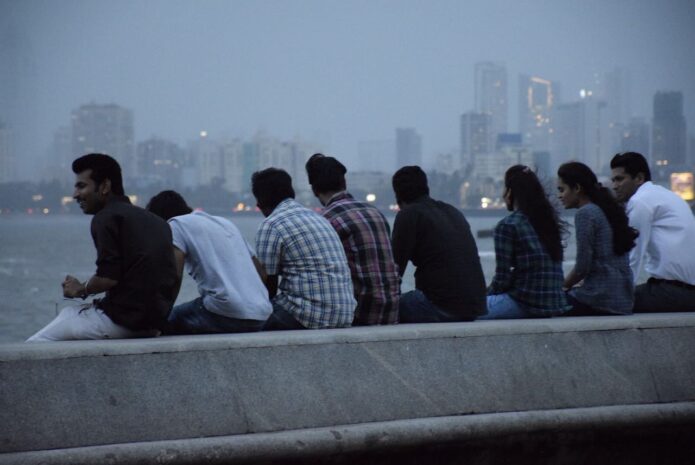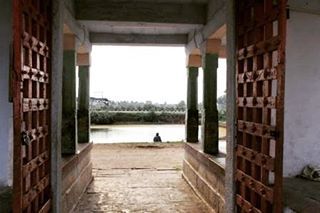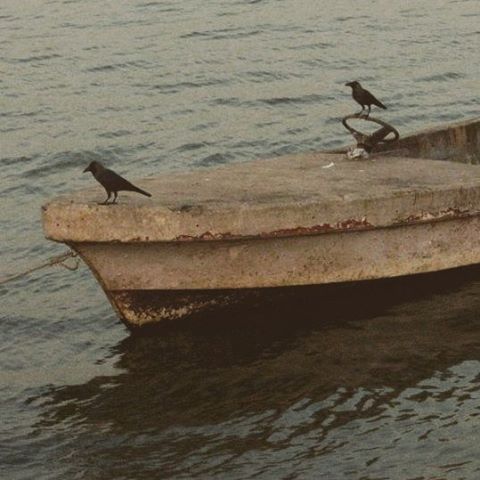They don’t publish
the good news.
The good news is published
by us.
We have a special edition every moment,
and we need you to read it.
The good news is that you are alive,
and the linden tree is still there,
standing firm in the harsh winter.
The good news is that you have wonderful eyes
to touch the blue sky.
The good news is that your child is there before you,
and your arms are available:
hugging is possible.
They only print what is wrong.
Look at each of our special editions.
We always offer the things that are not wrong.
We want you to benefit from them
and help protect them.
The dandelion is there by the sidewalk,
smiling its wondrous smile,
singing the song of eternity.
Listen! You have ears that can hear it.
Bow your head.
Listen to it.
Leave behind the world of sorrow
and preoccupation
and get free.
The latest good news
is that you can do it.
– Thich Nhat Hanh
PS: There is good news to reach out to. At all times. A reminder to myself.
Uncategorized
Clouds Of Japan
Tokyo is a city on the move. With a sense of calm hurriedness that can only be best experienced in a crowded metro. Or when the welcome note to the rented apartment mentions “by the way, there may be earthquakes. Don’t Panic”. Or like Typhoon Jebi is raging on and the resolute Japanese fight back with calm! ..
The Japanese are used to clouds. In a sad way too. But it doesn’t take long for you to notice they don’t let it cloud their way of living.
#traveller #instatravel #instapassport #blogger #travelblogger #blogging #travelinsights #traveladdict #traveltheworld #wanderlust #destinations # #wonder #independenceday #famous #celebrations #entrepreneur #love #wonder #musings #india #lives #nature #airport #Japan #tokyo #Jebi #typhoon (at Tokyo, Japan)
https://www.instagram.com/p/BnUhMS6FboX/?utm_source=ig_tumblr_share&igshid=zeghvxd3t3iq
Dance, music and colour. You are running between places and suddenly, at the end of the street, a street performance.
You just stop. And look. And then see more than what’s on. In flowing flawless white with a whip of a red and blue, the artists move with elan.
The drizzle threatens. But people are on a song and dance. The twirl of the ribbon and the music from the instrument colour the grey sky.
(at Seoul, South Korea)
A book & an open road
Decades ago, as we tossed empty ideas into the evening air, my dad jumped to reach a book from his collection. He passed it my way with a flourish and care that he reserved for books he had a special affection for.
The cover said “Zen and the Art of Motorcycle Maintenance” by Robert Pirsig. I thought it was a bag of tricks that would stop my incessant trips to the mechanic (and the consequent demands it had on his frayed wallet). But within a few minutes I spotted in the foreword: “It’s not very factual on motorcycles, either.” That was indication enough that what was to come was not as much of a trip to the garage as much as my seeking debates with dad.
Pirsig passed away last week. It caused me to dust off the dog-eared book and go over several underlined passages and random remarks with a firmer handwriting. Pirsig’s account of a motorcycle trip across America with his 11-year-old son and two other friends was not so much a travelogue as it was a treatise. As a young man, the allure of the bike and the open road held together the space for my exploration of his deeper musings. I remember reading and rereading the book. In part for what it offered, but also because I wasn’t able to comprehend all that it offered at one go.
It was much later that I learnt that the book had sold a million copies in the first year and that Pirsig had spent time in Asia (and India) as well. It suddenly seemed to hold greater potency than it had struck me as having when I first read it. The book was published in 1974 but its meandering conversations stand as a poignant pointer for us to examine our world and the times we live in today as well.
The book is set in the ’60s and ’70s. When America and the world was coming to terms with all the scientific advancements and the entirety of its consequences: industrialisation, mass production and other aftermaths including the hippie culture.
One particular incident from the book has stayed with me. Where the narrator takes the motorcycle to the mechanics and is left with a less than happy experience. To put it mildly.
It dawned on me then that a mere mastery over tools is as incomplete an experience as thinking of a home as just bricks and concrete. A home is defined by those who live in it. Similarly much of meaning emerges from our approach to our tools, our work and our lives. Just tools or a mere mastery over them takes us a good distance but it doesn’t complete the journey.
Many pages are devoted to the idea of ‘quality’ in the book. Quality as an unseen yet omnipresent way of working and living. (And not as a limited measure of a person, product or process.) The dusting off of the book brought me front and square with several aspects that have continued to stay with me, both consciously and otherwise: the criticality of the whole self, the heft in exploration and the need to reflect on the lenses we use to view the world around us, etc. But the most important elements, I realise, are the importance of nuance and the need to expand our horizons through reflection, dialogue and conversation.
Nuance, diversity and dialogue have been at the core of several things that we do at Founding Fuel. Take for instance the stellar conversation my colleague NS Ramnath has had with Nicholas Agar, author of The Sceptical Optimist. Do take the time to dive into the piece titled The Sceptical Optimist: A philosopher’s take on technological progress. There are several gems in there that made me pause and ponder over the inevitability of technological progress and the importance of comprehending its consequences.
Technology in the connected world of today is all pervasive. Having said that, both wholesome adoption or blind rejection of technology limit our living in these modern times. Deep questioning, dialogue and inclusive discussions are necessary. As Tom Brokaw said “… it will do us little good to wire the world if we short-circuit our souls”.
There is a heap of work to be done. Even as the spotlight remains trained on the tools and all the glamour associated with what they can do, there are other spaces that we need to train our attention on as well. Especially in the space where technology intersects with our lives and changes us and our societies forever. I will leave you with that thought.
The other thing that I want to leave you with is an invitation to stay connected here, and subscribe to Founding Fuel’s newsletter if you haven’t already. May I also invite you to have a conversation on the content here with someone you know. You never know where one conversation can lead you to.
In the spirit of Zen and the Art of Motorcycle Maintenance, I am going to indulge myself by leaving you with three quotes from the book to mull over.
“‘What’s new?’ is an interesting and broadening eternal question, but one which, if pursued exclusively, results only in an endless parade of trivia and fashion, the silt of tomorrow. I would like, instead, to be concerned with the question ‘What is best?’”
“If you want to build a factory, or fix a motorcycle, or set a nation right without getting stuck, then classical, structured, dualistic subject-object knowledge, although necessary, isn’t enough. You have to have some feeling for the quality of the work. You have to have a sense of what’s good.”
“The place to improve the world is first in one’s own heart and head and hands, and then work outward from there.”
This piece was first published here.
The Roads That Were Never Roads: Lessons from Madurai’s Village Temple
The gates open to a quiet courtyard, framed by four pillars. Step past them, and a ruffled mud road meanders ahead, leading into the lake, beyond which stand great trees. Keep walking, and the rolling hills stretch out, pristine and endless.
The village temple marks time through its many celebrations, but for a city dweller standing here, the past whispers through the landscape. The roads his parents walked suddenly feel clearer—long roads that were never roads at all.
Their journeys began not by asking “Is there a road?” but by stepping forward anyway. Their dreams were never limited by paths already drawn. They made their roads.
Perhaps that is the lesson these great doors hold—step through, look ahead, and go.
Future gazing
The few days spent in Washington DC attending the annual conference of the World Future Society was quite an experience. ( Detailed agenda and such else is here ). I had curated a collection of tweets from the conference and was published by team Founding Fuel earlier.
The future has been a topic of interest for a long while and the new ideas and conversations with several other futurists has only deepened it even further. Our future emerges at a faster clip that we dont often get to see the resultant changes that envelope us. How will our lives change with all the technology around? Will we live longer? Will we be happier? What would we drive around in? How will we learn? What will be life like in the age of our kids? How do we prepare them for that future? And of course, how will the future of work shape up? These and more questions abounded when I went in.
I intend publishing a few more blogposts over the next few weeks and share some ideas, learning and experiences. As always, I seek your responses, comments and ideas.
For now, here is what got published at Founding Fuel earlier.
Why Strong Partnerships Matter: The Power of Trust
You need partners.
The kind who watch out while you’re at the wheel. The ones who steady the course while you set direction.
Partners you don’t have to check on, because you just know—they’re there.
The ones who see the wrinkles you tried to hide. Not because they were looking for flaws, but because they know you too well.
In partnerships, moments come alive. Love blossoms. Possibilities emerge. New realities take shape.
And at the heart of it all? Trust.
Have you experienced it?








